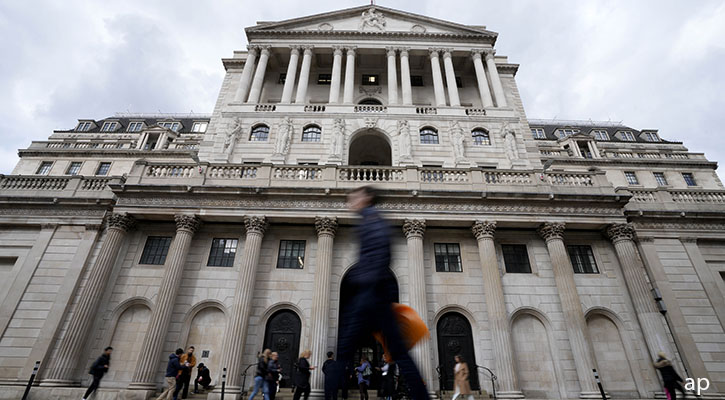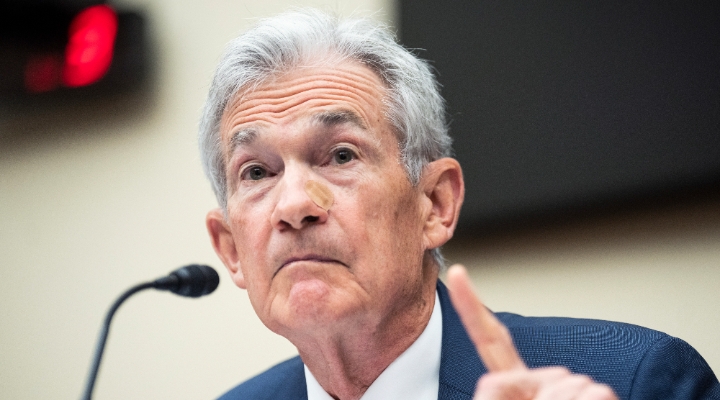.jpg)
It’s Not a Good Time to Work in Big Tech
It’s not been a good week for staff working at social media companies. Mark Zuckerberg announced he will be sacking 11,000 staff at his Facebook and Instagram brands. Meanwhile Elon Musk has fired more than half of Twitter’s 7,500 workforce in the space of a week – before then trying to rehire a small number of sacked engineers to implement his paid-for verification scheme. Things aren’t much better for those surviving the cull, with Musk scrapping Twitter’s generous working-from-home policy with just 24-hours' notice. Remote working will now only be allowed in "special" circumstances, and will have to be personally approved by Musk himself.
Liverpool FC Has a £4bn Price Tag
It’s been an unsettling season for The Reds so far, whose performance on the pitch has been patchy. This week US owners Fenway Sports Group "invited offers" to buy the club, which it bought for £300m in 2010. There is speculation the club could now be sold for £4 billion. Surprisingly enough, Ineos boss Sir Jim Ratcliffe, who has made no secret of his desire to own a Premiership football club, has ruled himself out. Frontrunners to buy Liverpool include US-based fund Redbird Capital (which already has a 10% stake) and Dubai International Capital, the investment arm of Dubai’s sovereign wealth fund. The group is fronted by Liverpool fan Sheikh Mohammed, who has an estimated personal fortune of around £12bn and has previously bid for the club. More speculative suggestions include Amazon boss Jeff Bezos, who allegedly wants to purchase a "sports outfit", and controversial Irish boxer Conor McGregor, who is on record saying “he would love to buy Liverpool” – though it is unclear whether he could afford such a high price tag.
M&S is Running up The Down Escalator
Sales increased over the past six months at Marks & Spencer (across both its clothing and food ranges) but profits are down by almost a quarter thanks to higher costs. The retailer has held off passing these to customers, but that could change next year, with M&S chair Archie Norman saying M&S execs are having to "run faster up the down escalator" as a result of the pressures. There were a couple of interesting nuggets in the results: the retailer revealed its "frequently bought together" suggestions have resulted in an extra £20m sales. And while M&S accounts for around 10% of UK clothing sales, the retailer remains a powerhouse when it comes to selling women’s underwear, with a 36 per cent market share in the bra market alone – equating to sales of some 6.1m bras sold over this period.
Nightclubs Aren’t Winning the Economic Dance-Off
A nightclub is closing every other day in the UK thanks to inflation and falling footfall. There are now 20% fewer nightclubs compared to pre-pandemic days. If that continues half of remaining venues could be closed within a year, with the industry effectively wiped out by the end of the decade. The industry is calling for support from government for the nighttime economy as many clubs struggle with large debts built up during the pandemic. If this is not forthcoming the industry could see a return to unregulated and illegal 1980-style raves with the young (and young-at-heart) buying loud speakers and even louder shirts. Either way, it’s not a time of ecstasy right now.
…And More Pubs Are Pulling Final Pints
It’s not just nightclubs. JD Wetherspoon, Britain’s totemically cheap Brexit-backing boozer, is closing 39 pubs after it warned of slowing sales and rising prices. The chain is also putting up prices with the cost of its “guest pint” in selected London bars going up by almost 30% to £4.39. However, unlike most pubs in the capital this will still ensure a pint is less than the £5. Shares in JD Wetherspoon, which floated in 1992, are down by more than 50% this year. It remains to be seen whether the upcoming World Cup and Christmas period will provide a well needed shot (in the arm) for the troubled pub industry – and potentially stave off further closures in 2023.
You Can Spare a Thought For The Brexit Bosses
Spoons boss Tim Martin isn’t the only Brexiteer boss having a difficult week. Next chief executive Lord Wolfson has also warned of tough times ahead for his firm, and has called for the government to relax immigration rules to fill vacancies across a number of UK industries. In a radio interview he described the current situation as being “not the Brexit he wanted”, which does beg the question: is there anyone in the UK who got the Brexit they wanted?
Primark is Bucking The Trend
Perhaps the most important thing we learned this week was what a "snuddie" is. For the uninitiated, it’s a blanket with a hood, and is ideal for snuggling on the sofa when the thermostat is turned down. Booming demand has helped cut-price clothes retailer Primark rack up £7.7bn sales, a 43% increase on the year before. It also said the strong performance meant it won’t be bumping up clothing prices until at least next summer, despite rising costs. Oh, and get this, the one clothes outlet not trying its hand at e-commerce is now taking the plunge, with a click-and-collect option hopefully in the pipes ahead of the all-important Christmas season.
The Crypto World is Facing its "Lehman" Reckoning
Crypto exchange giant FTX exchange remains on the brink of collapse after a rival firm pulled out of a potential rescue package. Binance – the world’s largest crypto exchange – said it was unable to step in given the scale of the company’s problems. It cited news reports of mishandled customer funds and an alleged investigation by the US Securities and Exchange Commission. Speculation about problems at FTX had caused what looked like an old-fashioned bank run, with customers rushing to take out their funds from the exchange, causing liquidity problems. This prompted the head of Crypto UK to describe this as a “mini-Lehman moment” for the sector, which is perhaps proving it’s not quite as different to the conventional centralised finance models after all.
iPhone Shortages Are Ahead
Apple has warned of shortages of its iPhone 14 Pro and iPhone 14 Pro Max models this Christmas following a Covid-19 outbreak at its largest plant in China. Initially it said production would continue, with workers effectively living in a “closed loop” around the Zhengzhou factory. However it has subsequently emerged many workers are clearly not happy with this work/life balance and have left, despite offers of bonuses. Apple now expects fewer shipments of its core products and has warned customers will experience “longer wait times” before they get new handsets. Apple has so far avoided the sell-off seen at other mega-tech stocks. Could that change?
Christmas is Officially "Open"
The start of the festive season used to be marked by town center lights being switched on by non-celebs. These days Christmas begins with the broadcast of John Lewis’s Christmas advert. This year the retailer scaled back the cheer to focus on children in care. It has been positively received, with many viewers reduced to tears. Whether it boosts skateboard sales at the department store – or even donations to youth charities – remains to be seen.




























